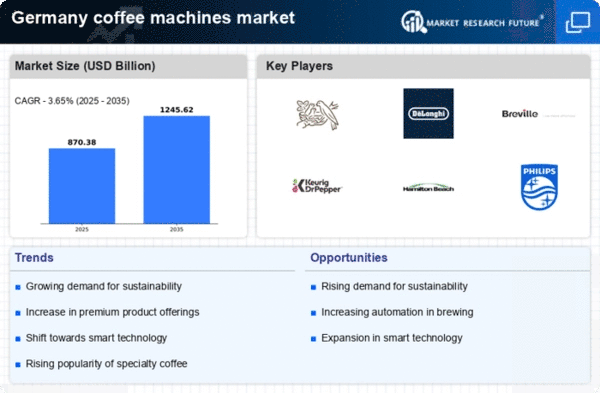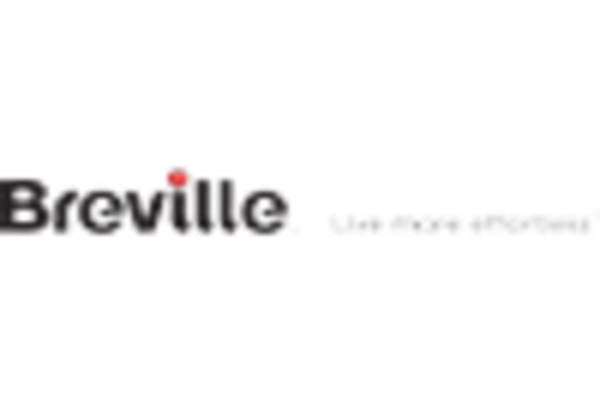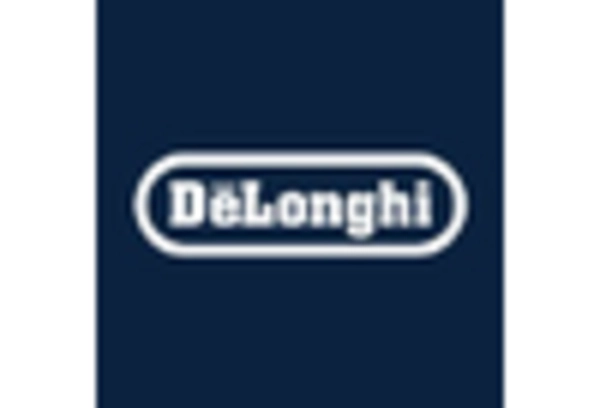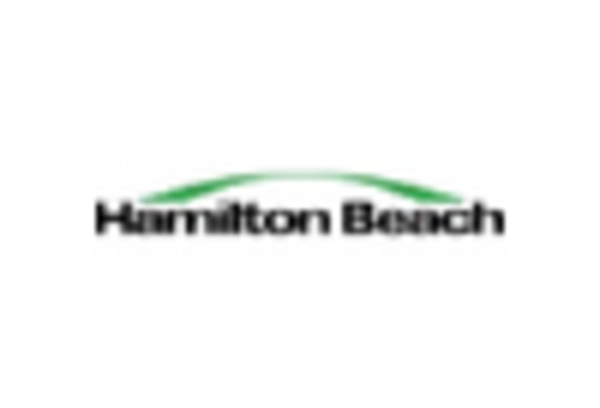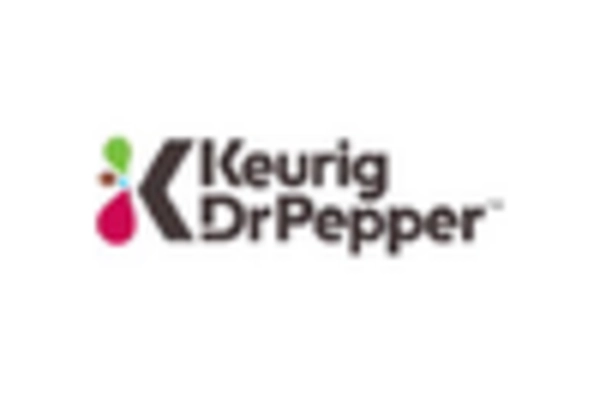Rising Health Consciousness
Health consciousness among German consumers is influencing their coffee consumption habits, thereby impacting the coffee machines market. There is a growing preference for organic and specialty coffee, which is perceived as healthier. This trend is prompting manufacturers to develop machines that can accommodate various brewing methods, including cold brew and pour-over, which are often associated with higher quality and health benefits. As a result, the coffee machines market is likely to see an increase in sales of machines that support these brewing techniques, appealing to health-conscious consumers.
Changing Consumer Preferences
Consumer preferences in Germany are evolving, with a marked shift towards specialty coffee and artisanal brewing methods. This trend is influencing the coffee machines market, as consumers seek machines that can replicate café-quality beverages at home. The demand for espresso machines and single-serve options is on the rise, with sales of these products projected to increase by 15% in the coming year. As consumers become more discerning about their coffee choices, manufacturers are responding by developing machines that cater to these preferences, thereby driving growth in the coffee machines market.
Increased Focus on Home Brewing
The coffee machines market in Germany is benefiting from a growing trend towards home brewing. As more consumers prioritize the experience of making coffee at home, the demand for high-quality coffee machines is surging. In 2025, it is anticipated that the home brewing segment will account for approximately 40% of total coffee machine sales in Germany. This shift is fueled by a desire for convenience, cost savings, and the ability to experiment with different coffee styles. Consequently, manufacturers are focusing on producing machines that are user-friendly and versatile, further propelling the coffee machines market.
E-commerce Growth and Online Sales
The coffee machines market in Germany is witnessing a significant shift towards e-commerce, with online sales channels becoming increasingly popular. In 2025, it is projected that online sales will account for over 25% of total coffee machine sales in the country. This trend is driven by the convenience of online shopping, competitive pricing, and the ability to access a wider range of products. As consumers increasingly turn to online platforms for their purchases, manufacturers and retailers are adapting their strategies to enhance their online presence, thereby fostering growth in the coffee machines market.
Technological Advancements in Brewing
The coffee machines market in Germany is experiencing a notable shift due to rapid technological advancements. Innovations such as integrated grinders, customizable brewing settings, and smart connectivity features are becoming increasingly prevalent. These advancements cater to the growing consumer demand for convenience and quality. In 2025, it is estimated that around 30% of coffee machines sold in Germany will incorporate smart technology, allowing users to control their machines via mobile applications. This trend not only enhances user experience but also drives sales in the coffee machines market, as consumers are willing to invest more in machines that offer advanced functionalities.


